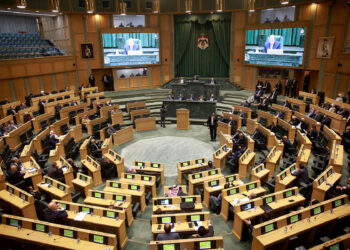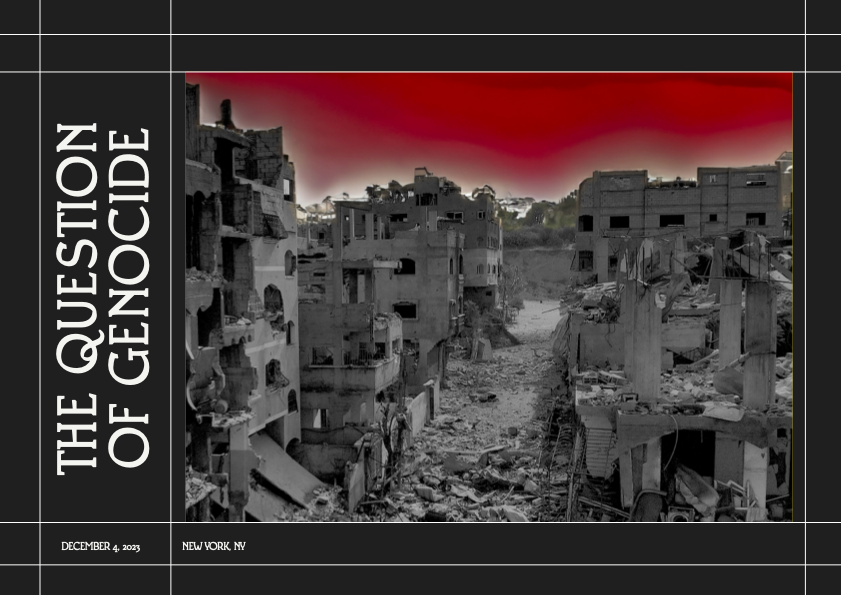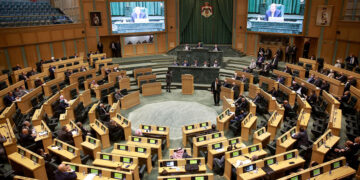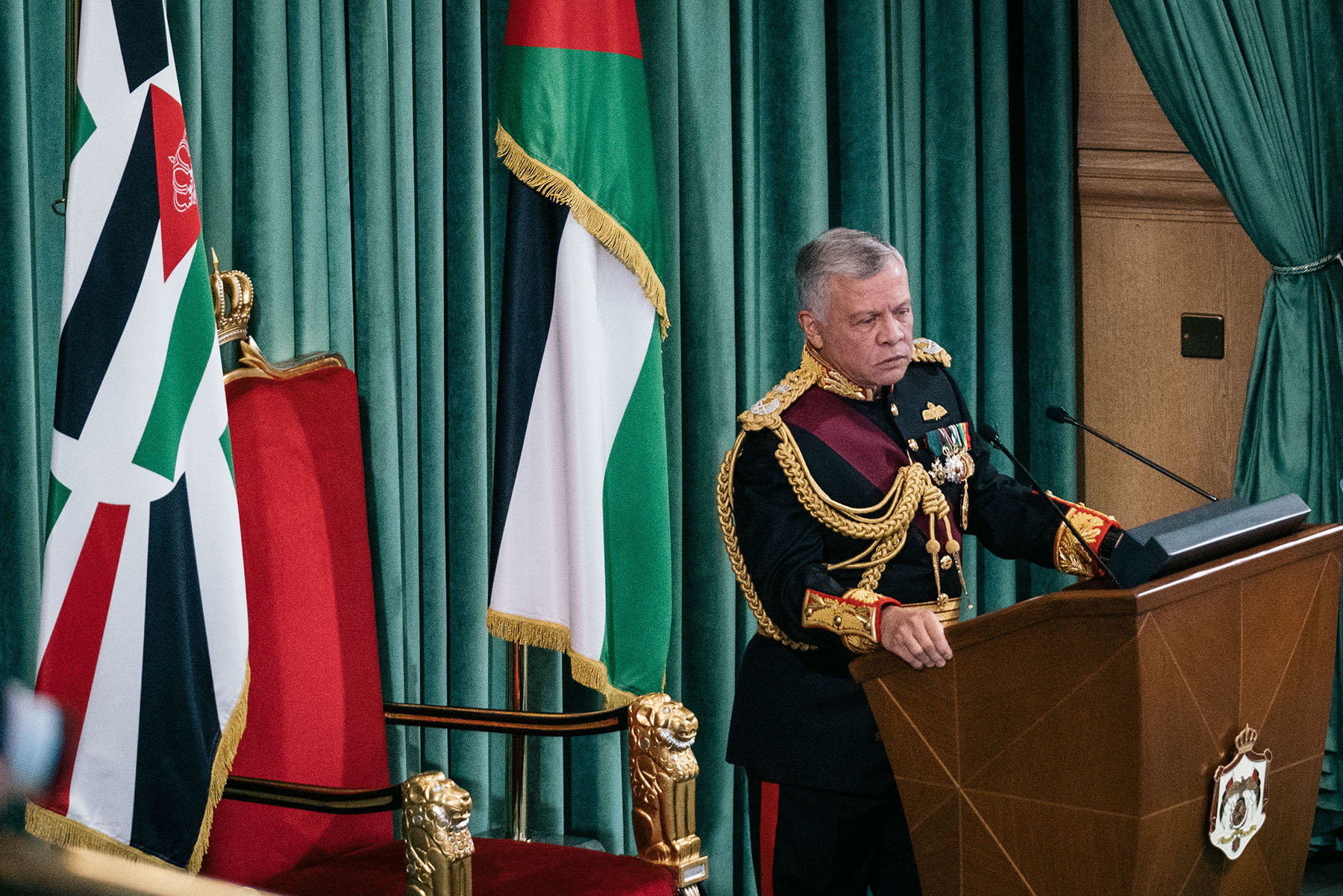State Parties to Genocide Convention Should Submit Declarations of Intervention in Support of South Africa's Case Against Israel at the ICJ
(Washington, DC, January 9, 2024) – A roundtable of experts convened by Democracy for the Arab World Now (DAWN) has concluded that the recent assault on Gaza by Israel, including mass killing of at least 22,000 civilians, the forced displacement of nearly 1.9 million Palestinians, deprivation of essentials like water and electricity, and denial of humanitarian access, coupled with explicit declarations of intent by Israeli officials to destroy the population of Gaza, likely amounts to genocide under the Convention on the Prevention and Punishment of the Crime of Genocide.
In light of these findings, DAWN urges state parties to the Genocide Convention to submit their own Declarations of Intervention to support South Africa's recent submission to the International Court of Justice (ICJ) alleging Israeli intent and commission of acts of genocide in contravention of the Genocide Convention.
"Expert analysis of Israeli government statements revealing their intent to destroy Palestinians in Gaza, combined with military actions on the ground, including mass killings, forced displacement, and the deprivation of items essential to life in Gaza, suggest that the crime of genocide is being committed against the Palestinian population," said Sarah Leah Whitson, Executive Director of DAWN. "South Africa's charging Israel with genocide before the International Court of Justice underscores the need for decisive international action to compel a ceasefire and hold the perpetrators of these atrocities accountable."
The expert roundtable, convened by DAWN and American Friends Service Committee (AFSC), and co-hosted by the Lemkin Institute for Genocide Prevention, Law for Palestine and the Center for Consittutional Rights (CCR), was held in New York on December 4, 2023 at The Church Center for the United Nations. During the public portion of the event, genocide scholars Dr. Raz Segal, Dr. Dirk Moses and Dr. Shannon Fyfe presented an evaluation of the facts leading to their determination that the Israeli assault on Gaza constitutes genocide under the Genocide Convention and the international community's legal obligations to prevent the continuation of the genocide and punish those responsible. Jehad Abusalim, Executive Director of the Jerusalem Fund, put the current Israeli military assault on Gaza in historical context, and made the case that Palestinians have been subjected to the crime of genocide since the Nakba in 1947-48, during which Israeli forces killed or forcibly expelled more than three-quarters of the Palestinian population. Katie Gallagher a senior attorney with CCR, described the legal basis for its lawsuit invoking the Genocide Convention against U.S. officials for failing their obligations to prevent genocide and punish any perpetrators, as required by the Convention.
Following the public presentations, a group of more than 25 academic, legal and policy experts discussed the issues of intent, state responsibilities to prevent and punish genocide, legal options for pursuing justice both for the crime of genocide by the state of Israel and for war crimes and crimes against humanity perpetrated by individuals, and the strategic utility for advancing the normative framework of genocide in policy spaces.
Israeli intent to commit a genocide against Palestinians is substantiated by statements by the Prime Minister, President, Minister of Defense, Cabinet members and members of the Knesset, as well as by influential media personalities and influencers. That the statements of intent come from officials with command and legal responsibility for the Israeli military leave no question that the intent is government policy and not merely rhetorical bravado.
On January 4, roundtable co-host Law for Palestine published a database of over 500 instances of Israeli incitement to genocide, sorted by statements made by decision makers, legislators, and army personnel and officers. Evidence at the panel documenting israeli intent include:
- Prime Minister Benjamin Netanyahu's repeated invocation of the Biblical story of Amalek, a people that were in conflict with ancient Israelites. In multiple verses in the Bible, God commands the Israelites to "blot out the remembrance of Amalek from under heaven" (Deuteronomy 25:17-19)
- Defense Minister Yoav Gallant's declaration of the siege on Gaza, depriving the people in the territory of water, electricity, fuel, food, and humanitarian assistance, in which he referred to Palestinians in Gaza as savages and human animals
- Likud party MK Ariel Kallner's tweet, "Right now, one goal: Nakba! A Nakba that will overshadow the Nakba of 48."
Coupled with these statements of intent to destroy the population of Gaza, Israel's actions meet the criteria of elements of the crime of genocide under the Genocide Convention, including:
- Killing Members of the Group: As of January 8, Israel has killed over 22,000 Palestinians in Gaza, according to reports, constituting almost 1% of the territory's population. The actual death toll, however, is much higher, as thousands of people are still missing and buried under the rubble and expected to increase dramatically due to Israel's blockage of humanitarian aid. By comparison, in other circumstances where the U.S. government made a formal finding of genocide, 8,000 Bosnian Muslims from Srebenica were killed by Bosnian Serb forces in the July 1995 Bosnian genocide; approximately 6,700 Rohingya were killed by Myanmar's armed forces in the first month of the genocide starting in August 2017; and over 5,000 Yazidis were killed by ISIS forces in August 2014 genocide in northern Iraq.. The Palestinian death toll includes at least 6,000 children, which is double the total number of children killed in all the world's major conflict zones in 2022. The use of indiscriminate weapons in civilian areas, the deliberate targeting of civilians, and the deliberate destruction of civilian homes and infrastructure go well beyond any reasonable conception of military necessity and reflect instead acts designed to fulfill the intent of destroying the Palestinian population of Gaza.
- Causing Serious Bodily or Mental Harm: Similarly, Israeli military assaults resulting from indiscriminate, deliberate and disproportionate attacks on civilians and civilian infrastructure have injured over 58,000 people and psychologically harmed the entire 2.2 million population of Gaza. On December 21, the U.N. World Health Organization (WHO) warned that the risk of famine is increasing each day, with more than 570,000 Palestinians in Gaza already starving. Furthermore, the WHO is reporting over 100,000 cases of diarrhea, more than 150,000 cases of upper respiratory infection, and increasing numbers of cases of malnutrition, meningitis, hepatitis and other diseases resulting directly from Israel's attacks on the civilian infrastructure of Gaza. The lack of sanitation and hygiene, on top of a destroyed health system, leave the entire Palestinian population in Gaza susceptible to starvation and disease. Inflicting severe physical and psychological distress on Palestinians, constitutes the act of causing serious bodily or mental harm.
- Deliberately Inflicting Conditions of Life for Destruction: From the outset of its assault on Gaza, Israel cut off the supply of water, electricity and fuel to Gaza, bombed the Rafah Crossing and blocked humanitarian aid from reaching Gaza. On November 8, the United Nations Office for the Coordination of Humanitarian Affairs (UN OCHA) reported that Israel had destroyed nearly 45% of the homes in Gaza. On December 30, the Wall Street Journal reported that nearly 70% of Gaza's homes were destroyed.
Balakrishnan Rajagopal, the UN Special Rapporteur on the right to adequate housing, referred to Israel's campaign of domicide, noting, ""Carrying out hostilities with the knowledge that they will systematically destroy and damage civilian housing and infrastructure, rendering an entire city – such as Gaza city – uninhabitable for civilians is a war crime." He added that domicide "is now being committed in Gaza, and the world continues to watch helplessly while core international human and humanitarian law norms are brazenly breached."
Furthermore, Israel has continually targeted and attacked health care facilities and workers, rendering nearly half of the hospitals in northern Gaza put out of service by November 2. By November 24, Indonesia, Al-Shifa and Al-Rantisi Hospitals were occupied by the Israeli military and forced out of service; on December 18, Al-Ahli Hospital, the last partially functional hospital in northern Gaza was forced out of service.
The imposition of harsh living conditions, including restrictions on access to healthcare and essential services, and the vast destruction of homes suggests an effort to bring about the physical destruction of the Palestinian group, at least in part. In Myanmar, the same fact pattern of violence and destruction formed the basis of the ongoing case of genocide against the Rohingya brought by The Gambia at the ICJ. In its November 2019 filing, The Gambia cited the "clearance operations" carried out by the Myanmar military, which included mass killing, rape and the systematic destruction of homes in Rakhine State starting in October 2016. These acts were cited as intended to bring about the physical destruction of the Rohingya people, forcing survivors to flee into neighboring Bangladesh. Israel's attacks on all civilian infrastructure, homes and health care facilities, along with preventing the sufficient humanitarian assistance from reaching Palestinians in Gaza, renders life impossible for Palestinians.
Each of these elements presented at the expert roundtable, couple with Israeli declarations of intent, collectively informed DAWN's assessment that Israel's assault on the Palestinian people in Gaza constitute a genocide under the Genocide Convention. The evidence not only suggests a breach of the prohibition against genocide but also raises concerns about ongoing war crimes and crimes against humanity, demanding immediate international response.
"With increasing international recognition of these acts as genocidal, it is imperative for states to respond accordingly," said Adam Shapiro, Director of Advocacy, Israel/Palestine at DAWN. "A ceasefire is crucial, but accountability and justice for the victims of genocide are paramount."
On December 29, 2023, South Africa submitted an application to the ICJ, instituting proceedings against Israel for violating its obligations under the Genocide Convention. This 84-page application detailing Israel's genocidal actions in Gaza marks the first time a nation has formally charged Israel with genocide at the ICJ. The court has scheduled hearings on January 11 and 12 on South Africa's request for provisional measures to stop Israel's genocidal actions.
Numerous governments have also concluded Israel's actions constitute "genocide," highlighting a growing international consensus. Brazil's President Luiz Inácio Lula da Silva described Israel's actions as genocide, implicating thousands of innocent children and women. Colombia's President Gustavo Petro, Venezuela's President Nicolas Maduro, Algeria's President Abdelmadjid Tebboune, Türkiye's President Tayyip Erdogan, Bolivia's President Luis Arce, Djibouti's President Ismail Omar Guelleh, Jordan's Foreign Minister Ayman Safadi, Pakistan's UN Ambassador Munir Akram, Iran's President Ebrahim Raisi, Qatar's Emir Sheikh Tamim bin Hamad Al-Thani, and Oman's Foreign Minister Sayyid Badr Albusaidi have all echoed similar sentiments, each condemning Israeli actions and intent and calling for international attention to what they have described as genocide or genocidal acts.
Despite these numerous statements, no government has yet submitted a Declaration of Intervention in support of South Africa's case against Israelinvoking the Genocide Convention. Declarations of Intervention allow states to formally express their support for the case and contribute to the legal proceedings, enhancing the case's legitimacy and impact. By contrast, 33 states submitted Declarations of Intervention in the Ukraine genocide case currently before the ICJ, while seven states submitted Declarations in the Myanmar genocide case, in addition to the 57 Muslim countries represented by The Gambia in its filing on behalf of the Organization of Islamic Conference.
"South Africa's application to the International Court of Justice, invoking the Genocide Convention against Israel, represents a pivotal moment in the pursuit of global justice and accountability," said Raed Jarrar. "With the first hearings less than a week away, it is time for the international community to support this process and speak with one voice to stop the genocide against the Palestinian people."
DAWN calls all state parties to the Genocide Convention to immediately review South Africa's application to the ICJ and submit Declarations of Intervention in support of the case. For those states that are unable to take this action, DAWN calls on them to immediately issue public statements in support of South Africa's filing.
DAWN also calls on the Biden Administration not to interfere with the administration of this case at the ICJ, including by not seeking to influence or alert the President of the ICJ, Judge Joan E. Donoghue, to its position or opinion on the application. Such intervention would demonstrate a disturbing interference with international justice by the administration, which promotes an international rules-based order, and would further erode and undermine U.S. credibility globally.
DAWN continues to expose perpetrators of war crimes and crimes against humanity, including bringing referrals for sanctions to the U.S. government and to the International Criminal Court. DAWN recently submitted the names and profiles of 40 Israeli commanders to the ICC for war crimes investigations. For more information, visit the Israel/Palestine Culprits Gallery.








































